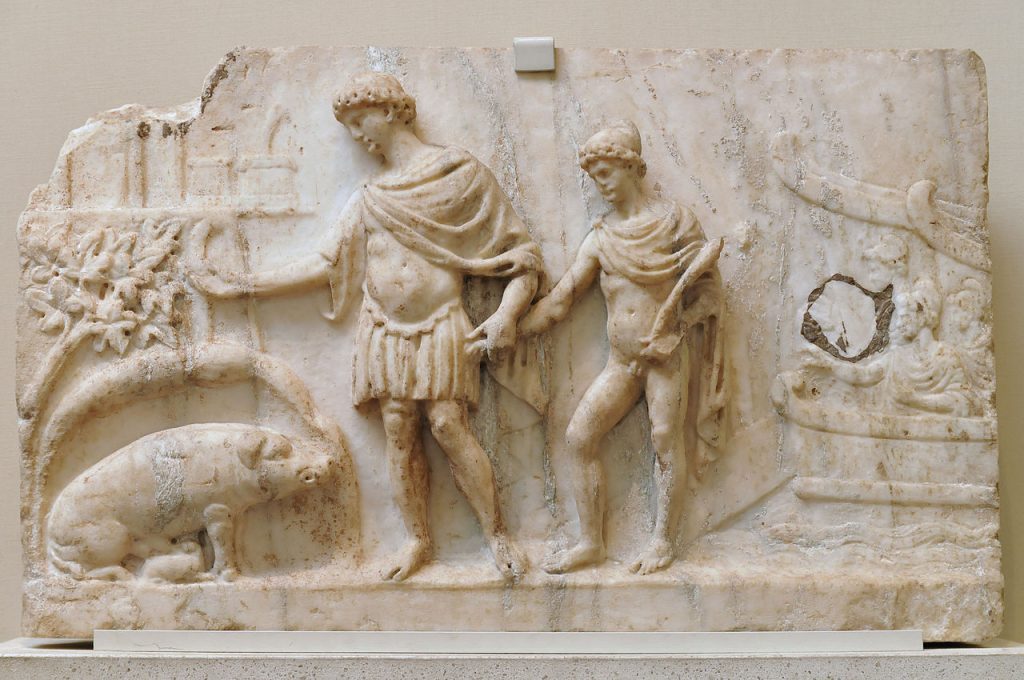Unveiling the Depth of Book VIII in Virgil’s Aeneid: A Journey Through Fate and Alliances
Introduction
Book VIII of Virgil’s Aeneid is a crucial chapter that encapsulates the themes of fate, duty, divine intervention, and the importance of alliances. As Aeneas prepares for the imminent war and solidifies his connection with future Rome, the narrative dives deep into the symbolic and literal preparations for battles that define the hero’s journey. This exploration of Book VIII reveals how these themes are intricately woven into the fabric of the epic, portraying the destined greatness of Rome through Aeneas’s trials and triumphs.
The Strategic Alliance with King Evander
Aeneas’s Quest for Support
In Book VIII, Aeneas reaches Pallanteum, the future site of Rome, and meets King Evander, a pivotal ally in the Trojan’s quest to fulfill his destiny. This meeting is not just a plea for military support but a significant alliance that underscores the themes of unity and mutual respect among different peoples, crucial for the establishment of Rome.
Symbolic Hospitality
Evander’s warm reception of Aeneas, despite their cultural differences, symbolizes the bridging of communities and foreshadows the inclusive nature of the future Roman Empire. Their alliance is cemented by shared values and the understanding of a common enemy, setting a foundation for the cooperative spirit that Rome would be known for.
The Shield of Aeneas: A Symbol of Fate and Divine Craftsmanship
Vulcan’s Masterpiece
Commissioned by Venus and crafted by Vulcan, the shield of Aeneas is not merely armor but a narrative canvas that depicts scenes of Roman glory yet to unfold. This prophetic piece of art serves multiple functions within the story: it’s a protective tool, a piece of divine intervention, and a symbol of the inevitable rise of Rome.
Prophetic Imagery
The detailed imagery on the shield acts as a visual prophecy, connecting Aeneas’s personal fate with the larger destiny of the Roman people. Scenes such as the battle of Actium and the establishment of Roman peace under Augustus are not just decorations but reassurances of the divine support that guides Aeneas and his descendants.
Navigating Fate and Duty in Modern Times
The Relevance of Aeneas’s Journey
In our own modern times, the journey of Aeneas resonates as a reflection on leadership and the responsibilities that come with it. His story is a reminder of the balance leaders must maintain between personal desires and their duties to the larger community—a theme that transcends time and remains relevant today.
The Role of Divine Intervention
The gods play an integral role in the unfolding events of Book VIII, influencing outcomes and guiding Aeneas towards his fate. This divine intervention is a double-edged sword, offering both support and challenges, and raises questions about free will versus destiny that are still debated in modern philosophical and theological discussions.
Themes of Unity and Leadership in the Aeneid
Building Alliances
Aeneas’s alliances throughout Book VIII highlight the importance of strategic partnerships and collective strength. This theme extends into the political realm of modern times, where diplomacy and alliances remain key elements in both war and peace.
The Burden of Leadership
As Aeneas prepares for the war that will ultimately lead to the founding of Rome, his leadership is tested in ways that many modern leaders can empathize with. His journey is a blueprint for the burdens and expectations placed on those who lead, emphasizing the resilience needed to guide others towards a common goal.
Conclusion: The Timeless Legacy of Book VIII
Book VIII of the Aeneid is more than just a preparatory tale for the conflicts to come; it is a deep dive into the psychological and moral preparations a leader must undertake in the face of destiny. The alliances formed, the divine interactions, and the symbolic acts like the receipt of the shield all play crucial roles in setting the stage for the epic’s climax.
In modern times, the lessons from Aeneid’s Book VIII continue to resonate, offering insights into leadership, the importance of community, and the universal quest for peace and stability. As we navigate our contemporary challenges, the story of Aeneas reminds us that our actions are part of a larger narrative, woven with the threads of fate, duty, and divine will.







